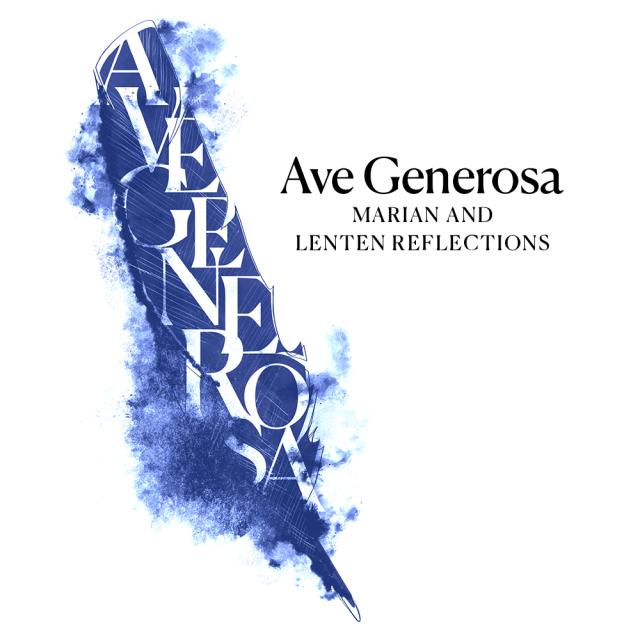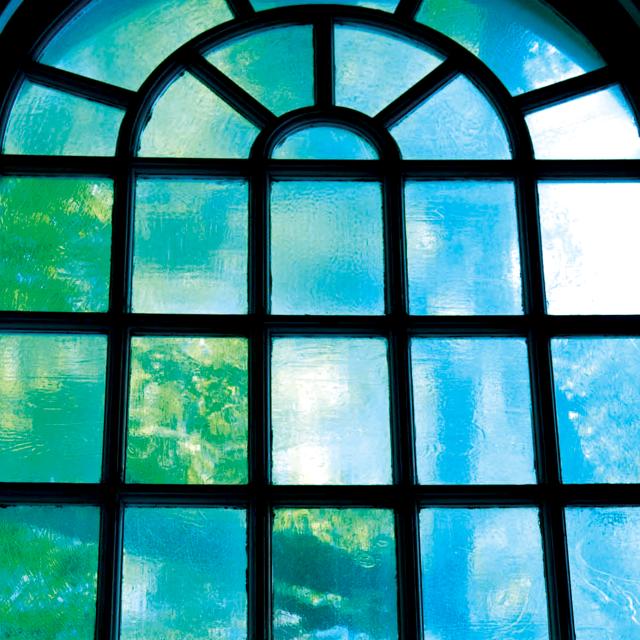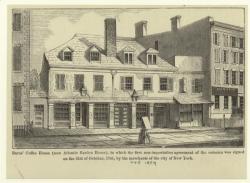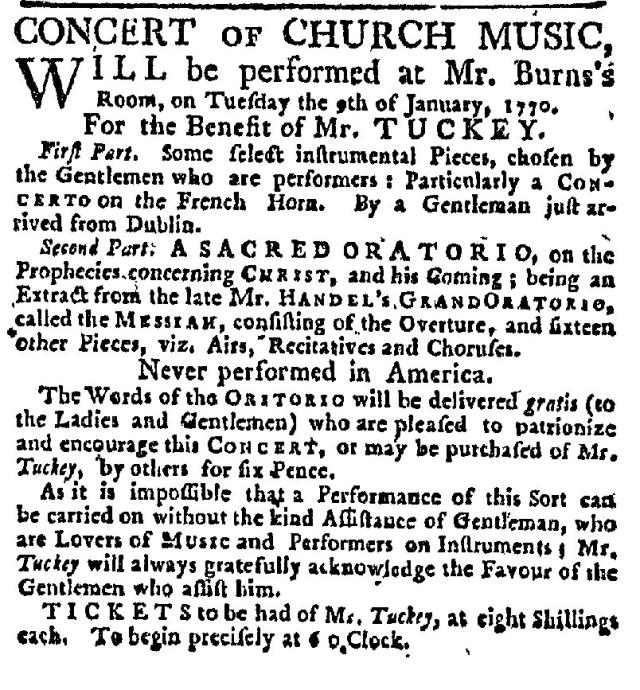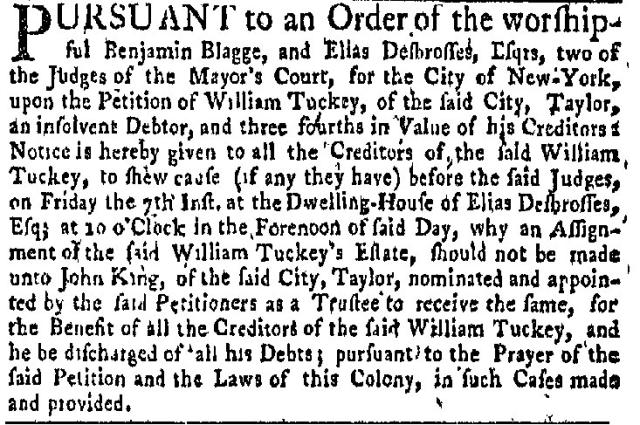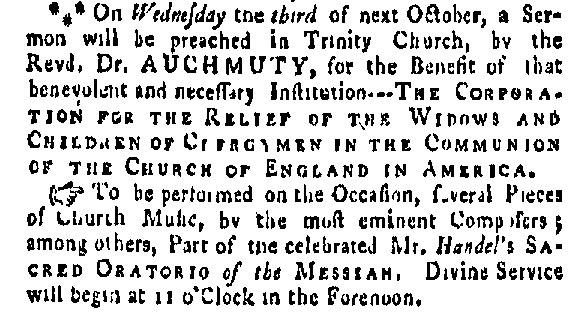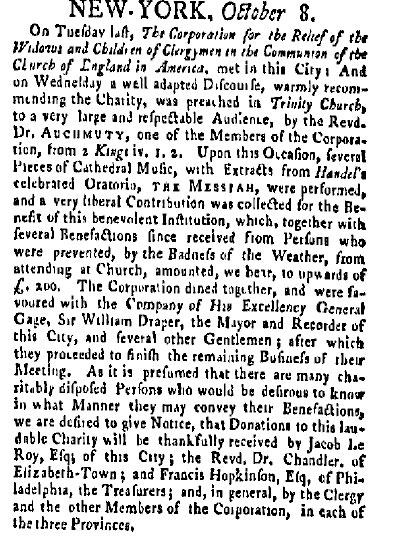The True Story of the First Performance of Messiah in the New World

It’s a great and oft-repeated story: Trinity Church gave the first performance of Handel’s Messiah in the New World.
Too bad it’s not true.
Luckily, the real story is actually more interesting.
The first performance of Messiah in the New World was given by William Tuckey, a bankrupt former employee of Trinity Church, as a benefit for himself on Tuesday, January 16, 1770. The concert was held at “Mr. Burns Rooms,” also know as “Burns Coffee-house,” a tavern at 9 Broadway. Tuckey actually advertised his performance as the first in America. Admission was 8 shillings.
Original advertisement from The New-York Journal, January 4, 1770:
The concert was originally scheduled for Tuesday, January 9, 1770, but postponed for one week because there were "a considerable number of Ladies and Gentlemen engag'd for the 9th, which Mr. Tuckey flatters himself will honor him with their Company."
Tuckey, an Englishman who came to the colonies in 1752, had been vicar choral of the Cathedral Church of Bristol and Clerk of St. Mary Port, also in Bristol. He was hired by Trinity Church in 1753 at a salary of 25 pounds a year. His wife and children then joined him in the colonies. Tuckey’s official title was clerk and his tasks, besides teaching choir, were to set out the music for the service and lead the singing of psalms. In November 1756 Tuckey was fired from his clerk position for “refusing to officiate in time of Divine Service.” (It is unclear what the Vestry meant by that.)
After his firing, Tuckey was occasionally paid for preparing special occasion music, including music for the first service at St. Paul’s Chapel. He seems to have continued organizing choirs as well. But by 1769, he was an “insolvent debtor,” and a newspaper advertisement requested his creditors to appear before a judge to seek restitution.
From The New-York Gazette and Weekly Mercury, April 3, 1769:
On October 3, 1770, eight-and-a-half months after Messiah’s American premiere in a tavern, Trinity Church gave a performance of selections from the oratorio as part of a benefit for The Corporation for the Relief of the Widows and Children of Clergymen of the Communion of the Church of England in America.
Announcement of benefit from The New-York Gazette and Weekly Mercury, September 24, 1770:
The performance was well-received.
Notice from The New-York Journal, October 4, 1770:
As for Tuckey, he remained active in the New York City music community, publishing church music and giving concerts. But his money troubles never disappeared. In 1775 he had this advertisement printed in city newspapers:
From The New-York Gazette and Weekly Mercury, January 30, 1775:

